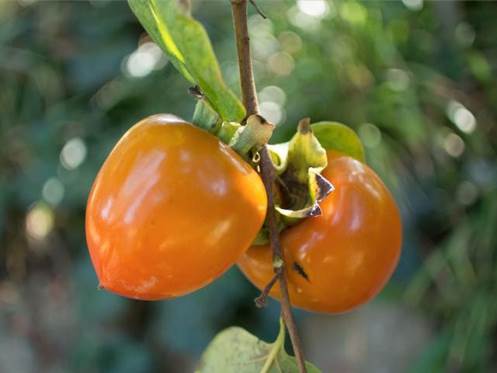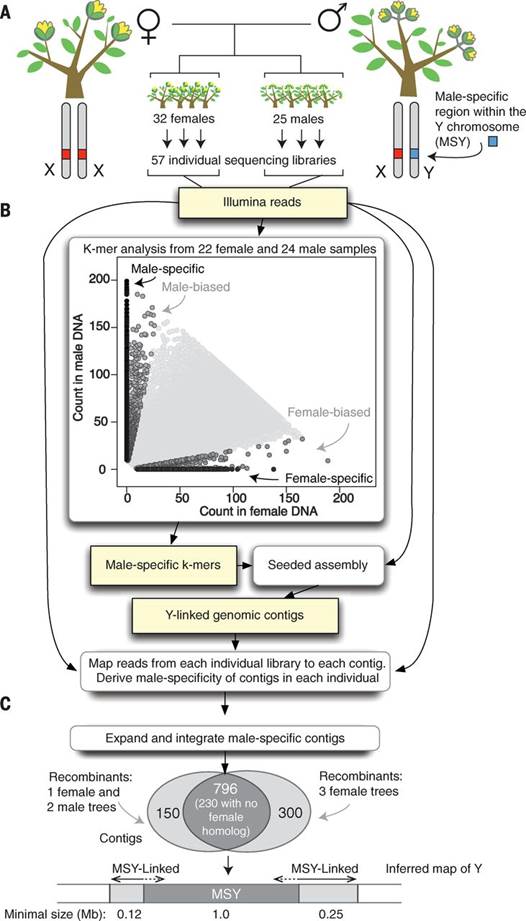日学者首次发现植物性别决定基因


众所周知,人类的性别由X、Y染色体来决定。而大多植物为雌雄同体,也有部分植物为雌雄异体。近日,日本京都大学研究小组在美国《科学》杂志上发表文章称,首次发现了决定植物雌雄的基因。
日本京都大学研究小组10月31日在美国科学杂志上发表文章称,首次发现了决定植物雌雄的基因。文章指出,这项研究有助于果树栽培时,在用肉眼难以区分雌雄的树木幼年时期,高效地选择留下需要的雌性或者雄性树苗。
植物雌雄性别是怎样受到基因影响的?
据报道,京都大学研究小组用柿子树来对决定植物性别的基因进行了探索。人们一般食用的柿子树多为雌雄同体,因此,实验专门选取了雌雄异体植物黑枣(俗称野柿子)来进行研究。
研究小组通过大规模的基因解析装置,发现并命名了决定植物雌雄的基因“MeGI”和“OGI”。雌性柿子树中只有基因“MeGI”,而雄性柿子树中发现存在“MeGI”和“OGI”两种基因,但“OGI”基因抑制“MeGI”基因显现。
东京大学助教赤木刚土表示“柿子树长大结出果实需要很长时间,而这项研究成果有助于在柿子树苗时期筛选雌性或雄性的树种”。 (来源:生物360)
A Y-chromosome–encoded small RNA acts as a sex determinant in persimmons
Abstract In plants, multiple lineages have evolved sex chromosomes independently, providing a powerful comparative framework, but few specific determinants controlling the expression of a specific sex have been identified. We investigated sex determinants in the Caucasian persimmon, Diospyros lotus, a dioecious plant with heterogametic males (XY). Male-specific short nucleotide sequences were used to define a male-determining region. A combination of transcriptomics and evolutionary approaches detected a Y-specific sex-determinant candidate, OGI, that displays male-specific conservation among Diospyros species. OGI encodes a small RNA targeting the autosomal MeGI gene, a homeodomain transcription factor regulating anther fertility in a dosage-dependent fashion. This identification of a feminizing gene suppressed by a Y-chromosome–encoded small RNA contributes to our understanding of the evolution of sex chromosome systems in higher plants.
原文链接:http://www.sciencemag.org/content/346/6209/646.full.pdf

